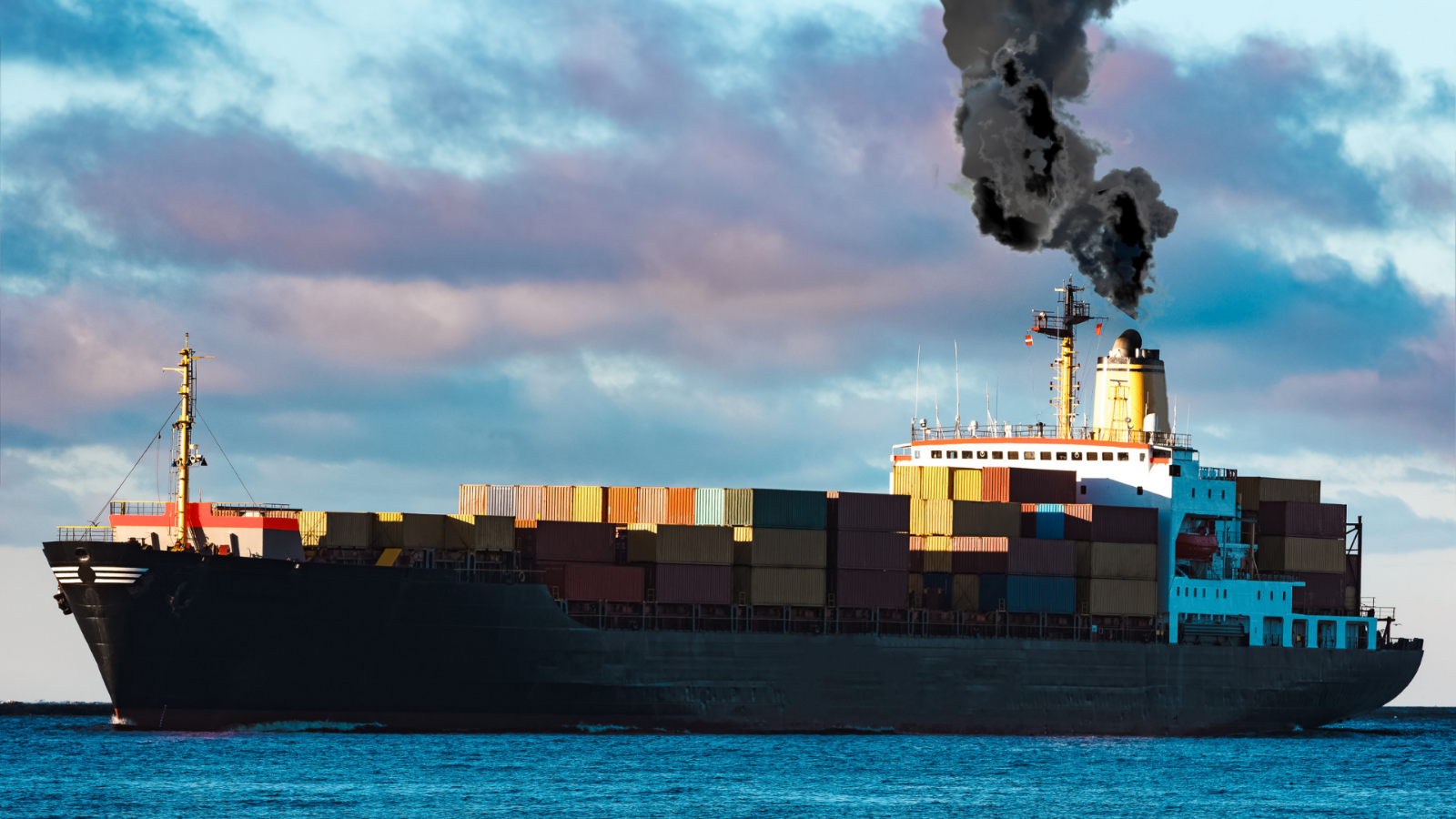PurpleTRAC: Sanctions and Sustainability Screening

With the climate change alarm raised, maritime intelligence company, Pole Star, has partnered with carbon accounting solutions provider, CarbonChain, and sustainability risk screening startup, Vasanda, to deliver a groundbreaking sanctions and sustainability risk intelligence solution to the maritime trade industry.
By now it is well-known that the world’s shipping fleet has not only quadrupled in size since the 1980s, but all 50,000 merchant vessels on the seas today are powered by fossil fuels, making it unsurprising that shipping is responsible for 2.5% of global greenhouse gas emissions. With ocean-going cargo volumes set to grow by 130% by 2050, either overseas manufacturing and transoceanic shipping must cease, or changes must be made at every level of industry for a greener future.
Pole Star, CarbonChain, and Vasanda’s end-to-end solution covers the full spectrum of risks across regulatory compliance and sustainability in global trade.
Climate change will not only have major consequences to our health and our environment, but it also poses significant risks to the financial system. These risks will come in the form of natural disasters and environmental degradation, as well as sudden regulation implementation, disruptive technologies, and drastic shifts in consumer and investor preferences. However, Pole Star, CarbonChain, and Vasanda’s end-to-end solution covers the full spectrum of risks across regulatory compliance and sustainability in global trade.
The primary platform, PurpleTRAC, is a regulatory technology solution designed to streamline trade compliance procedures in the midst of an increasingly complex regulatory landscape. It enables the screening of a vessel, its ownership, and management against sanctions and enforcement action watchlists, as well as the monitoring of the vessel’s activity to identify high-risk, and potentially illicit, behaviour. By integrating CarbonChain’s emissions calculations on over 76,000 vessels, users can also access GHG emissions data and environmental ratings. And, with the incorporation of Vasanda’s raw environmental impact data, key risks associated with any actively traded commodity, supplier, grower, or miner can be identified to determine the transactional risks, including environmental impact risks (deforestation, water productivity, non-naturally occurring fires), social conditions within the supply chain (labour exploitation), and governance metrics of each entity.
Using PurpleTRAC, users can screen their whole supply chain to ensure each entity meets their company’s carbon footprint and ESG goals, alongside emerging regulatory requirements.
In simple terms, those involved in a trade transaction can now choose the most sustainable, environmentally-friendly, and socially responsible transport option, and be rewarded with lower costs for doing so. Using PurpleTRAC, users can screen their whole supply chain to ensure each entity meets their company’s carbon footprint and ESG goals, alongside emerging regulatory requirements.
Ultimately, we will start seeing financial institutions pre-screening transactions to determine their sustainability risk when deciding to take on exposure or not, which subsequently creates a chain of green financing and encourages decarbonisation. As a result, green companies and vessels will be favoured, phasing out significant polluters and reducing emissions and environmental degradation across the board.
More information
